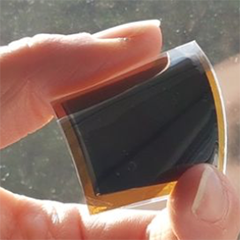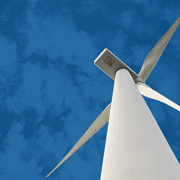Franco-German energy research alliance
The Centre for Solar Energy and Hydrogen Research Baden-Württemberg (ZSW) and the Institut Photovoltaïque d’Île de France (IPVF) are joining forces to cooperate closely in energy research. The aim of this Franco-German alliance is to develop the next generation of CIGS thin-film solar cells. The partners recently signed the deal in Stuttgart to collaborate on this special variant of flexible photovoltaics featuring a semiconductor made of copper, indium, gallium and selenium (CIGS). The agreement’s initial term is five years.
This collaborative effort of Stuttgart and Paris researchers goes to optimize the upcoming thin-film photovoltaic technology, boost its efficiency and cut costs. CIGS technology has achieved remarkable success of late. Cell efficiency has increased by 3.6 percentage points over the past five years. At 14 to 15 percent, CIGS thin-film solar modules sold today are challenging the silicon modules that dominate the market. The researchers’ agenda is to further exploit CIGS potential to further strengthen and accelerate the deployment of photovoltaics (PV) in the energy transition. To reach climate protection targets, increasing the efficiency of PV modules at low costs in a short term perspective is of key importance.
Focus on flexible solar cells
This joint effort is to focus on flexible solar cells and modules. The objective is to gain a deeper understanding of the processes in the solar cell and then increase cell efficiency. New materials and material combinations for flexible solar cells are also on the agenda, as is joint participation in research initiatives and an exchange program for the two institutes’ researchers and doctoral students.
The partners’ complementary knowledge provides a solid foundation for this effort. ZSW is contributing many years of know-how in CIGS cell and module development on various substrates. The institute has achieved four CIGS world records. IPVF has long-time experience in CIGS solar cell innovative elaboration processes and architectures and is engaged in flexible CIGS solar cells.
Prof. Michael Powalla ZSW board member and Head of the Photovol-taics division at ZSW, and Jean-Francois Minster, President of the IPVF, signed the statement of intent to cooperate on December 20th, 2017, at a joint event at ZSW in Stuttgart.
The Zentrum für Sonnenenergie- und Wasserstoff-Forschung Baden-Württemberg (Centre for Solar Energy and Hydrogen Research Baden-Württemberg, ZSW) is one of the leading institutes for applied research in the areas of photovoltaics, renewable fuels, battery technology, fuel cells and energy system analysis. There are currently around 235 scientists, engineers and technicians employed at ZSW’s three locations in Stuttgart, Ulm and Widderstall. In addition, there are 90 research and student assistants.
The ZSW is a member of the Innovationsallianz Baden-Württemberg (innBW), a group of 13 non-university, applied research institutes.
Founded in October 2013, IPVF is an industrial-academic partnership at the initiative of EDF and Total, CNRS and École polytechnique, and in association with Air Liquide, Horiba Jobin Yvon and Riber. IPVF organizes partners’ research activities in the field of photovoltaic solar energy on a local, national and international level. It aims at improving PV conversion efficiencies and competitiveness through the development of breakthrough technologies at cell and module levels. This approach is based on three drivers: a research program, an experimental platform and a training program.
With an initial budget of 150 Million Euro, the project partly benefits from French public funding through the Investments for the Future Program under grant number ANR-IEED-002-01. Within its new building located on the Paris-Saclay campus, the institute can host up to 200 PV researchers and offers 4000 m2 of laboratories.















